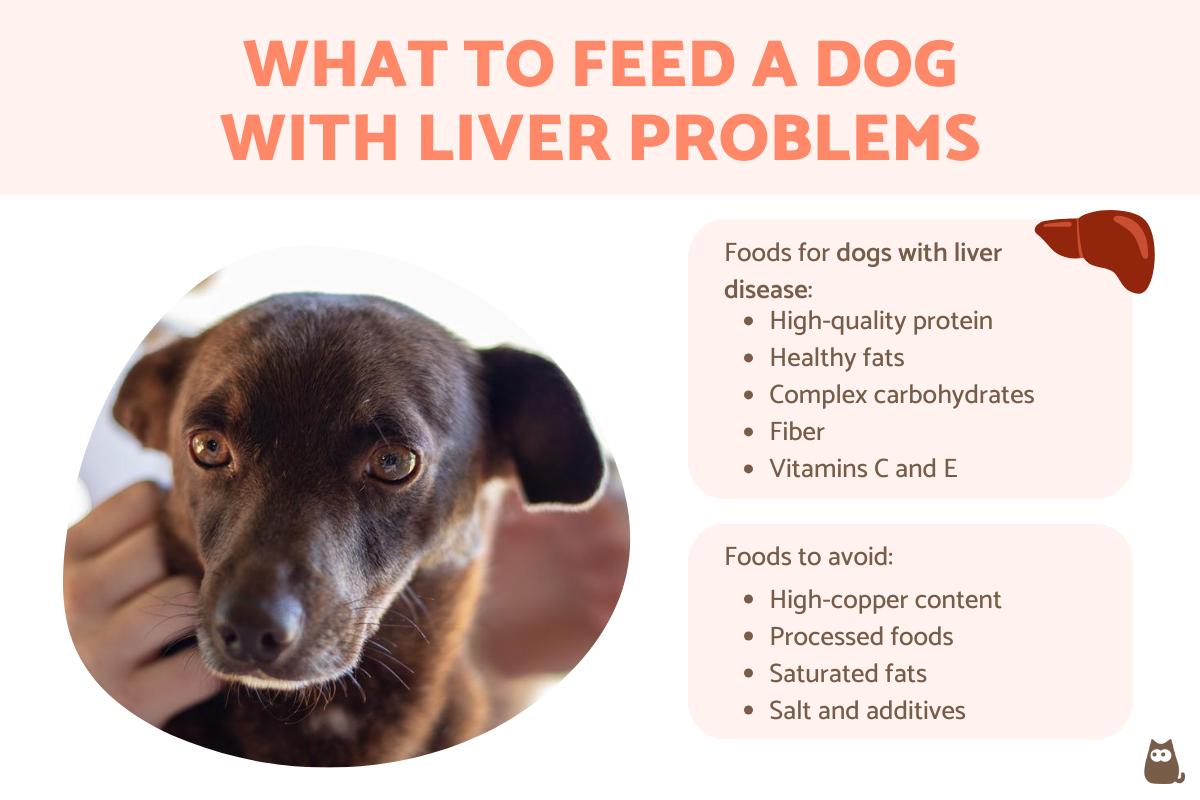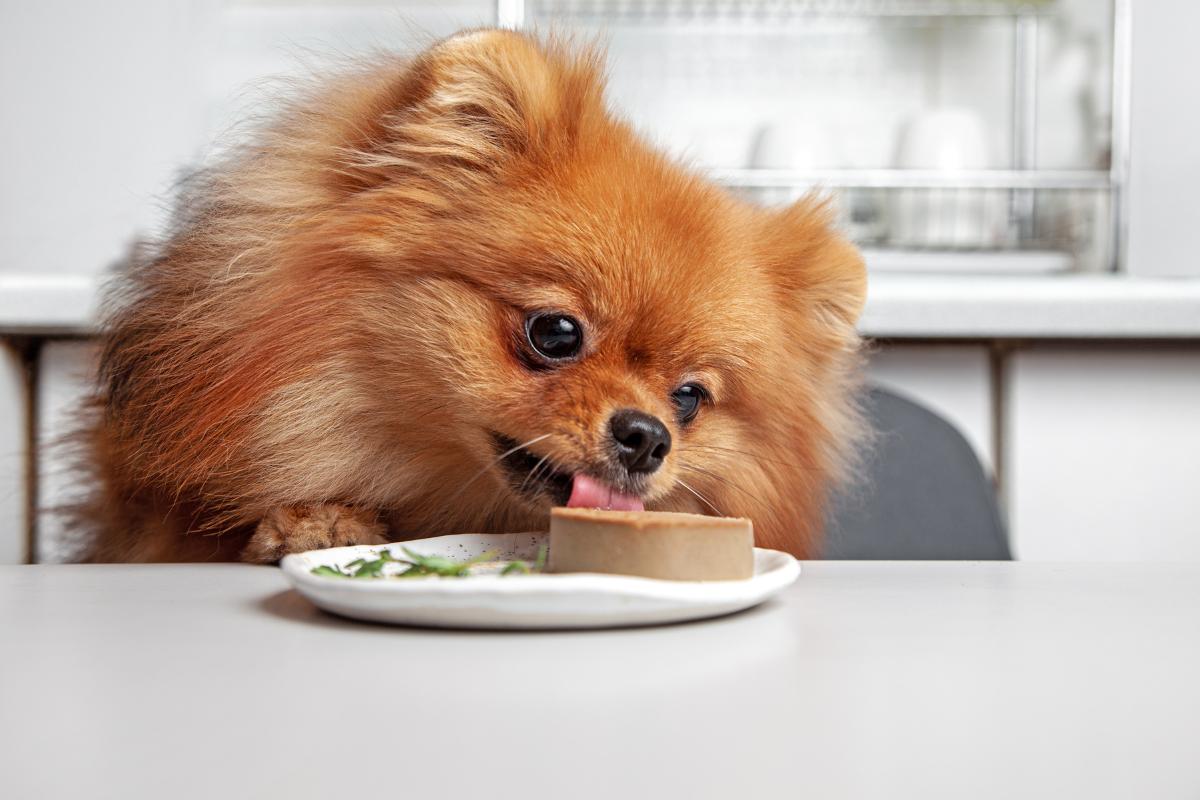What to Feed a Dog With Liver Problems



See files for Dogs
If you are wondering what is the best diet for dogs with liver disease, the first thing you will need to do is speak to a veterinarian. Liver disease is a general term for many health conditions which can impede the functionality of the liver. Some of them can be minor and allow the liver to have the ability to recover. Others cause severe liver damage whereby the organ can no longer function properly. In these cases, diet imperative since the wrong food can worsen the renal failure and expedite the dog's death. A veterinarian will need to make a diagnose to determine the cause of liver damage and they will include diet as part of their treatment plan.
At AnimalWised, we help to understand what to feed a dog with liver problems. Although the veterinarian will need to organize a treatment plan, we can help you know what to provide to strengthen the liver and what to avoid so as not to damage it further.
What does a dog live do?
The liver performs various essential functions for life. This includes as the synthesis of compounds, the elimination of toxins from the blood and the manufacture of natural blood coagulants. The liver also produces bile. Bile accumulates in the gallbladder until it is released into the duodenum, where it helps with the digestion of fats. This is an important live functions which we need to consider when creating a diet for dogs with liver problems.
When the liver fails, we will observe non-specific clinical signs such as anorexia, weight loss, vomiting, diarrhea, increased water intake and a greater amount of urination. Other characteristics of liver failure such as jaundice, ascites or hepatic encephalopathy are more specific to the hepatic system. Hepatic encephalopathy causes incoordination, changes in behavior or hypersalivation. It is a consequence of the high level of toxins that remain uneliminated in the blood.
Ammonia derived from protein metabolism stands out among the toxins which can accumulate in the liver. In addition to loss of appetite and digestive problems, there are other elements to take into account in the diet for dogs with liver problems. Liver failure has various underlying causes. If we see any of the above symptoms, the veterinarian will need to diagnose the problem with relevant tests and prescribe the appropriate treatment. This will likely include medication and dietary changes.
Learn more about how liver problems in dogs are diagnosed with our article on how to understand a dog's blood test.
What is the diet for a dog with liver disease?
As we have seen, the liver is involved in multiple functions of the body, such as the synthesis of substances or the elimination of toxins. Part of the treatment consists of controlling the substances that this organ will have to metabolize or discard. Although the liver is not exclusively part of the digestive system, it plays a key role. This means dietary changes can directly affect the liver. Neglecting to change diet in a dog with liver problems may worsen the renal issues.
For example, this can have serious consequences if the dog suffers hepatic encephalopathy. Switching the dog to a diet adapted to this disorder is an important part of symptom management along with the pharmacological treatment prescribed by the veterinarian. It needs specific, high-quality nutrition, controlling both the composition and percentages of each selected ingredient.
The exact nature of the diet for a dog with liver disease will depend on their underlying cause. It is possible the problem is temporary and the diet can be changed back once the liver has repaired. In cases of chronic liver disease in dogs, the dietary changes will need to be permanent.

What to feed a dog with liver problems
Dogs with liver problems need dietary changes, but this does not necessarily mean they require homemade food. Commercial dog food products can be specially formulated to address liver issues. Not all are the same quality and regulations may be more lax than for human food. However, if we choose a quality product with good reviews, it can be the best thing to feed our dog.
The food for dogs with liver problems needs to have certain factors to best ensure liver health. These include the following:
- High quality protein: dogs with liver problems do not need more or less protein. In fact, too much protein can increase the amount of ammonia in the blood. Generally speaking, it should be around 20% of their total food intake. The issue is quality. It will need to be high-quality protein which is broken down easily. This is best from chicken or fish, but it can be supplemented with eggs or even a little cottage cheese.
- Carbohydrates: dogs have adapted their diet to be able to eat carbohydrates. However, they need to be easily digestible and the right type. Simple carbohydrates like sugar should be avoided. Rice, potatoes and oatmeal are good sources of healthy carbohydrates for dogs with liver problems.
- Healthy fats: cottage cheese has a low amount of fat, but is a good source of protein. Other cheeses need to be avoided because they have high fat content. The only fats dogs with liver problems should eat are healthy fats such as omega-3 fatty acids. These can be found in fish or some oils such as flaxseed oil.
- Fiber: fiber is a complex carbohydrate which the body has difficulty digesting. This means it can help regulate overall digestion, helping to improve liver function in the process. It can be found in foods such as pumpkin, sweet potato and green beans.
- Vitamins and minerals: food high in antioxidants can be beneficial. Generally speaking, food with vitamins C and E are particularly important. These can be found in foods such as peas and leafy greens.
Food for dogs with hepatic encephalopathy
Some dogs may have developed complications from liver disease such as hepatic encephalopathy. In these cases, sometimes even special feed for dogs with liver problems won't be enough. We stress again the importance of speaking to your veterinarian, but they often require the dog has food derived from plant protein. Plant protein can help to reduce the amount of ammonia in the dog's diet and ensure better functioning.
In some cases, the dog may reject this type of feed. We will need to make it more palatable for them if so. We can do this by adding a little broth which is free from salt, garlic or other ingredients which are harmful for dogs in general, but particularly dogs with liver problems. It is recommended to offer food several times a day and in small portions. Specifically between 3 and 6 portins or as indicated by the veterinarian.
Homemade diet for dogs with liver problems
Veterinarians recommend giving dogs with liver problems a commercial hepatic dog food. This is because it is easier to control the nutrient intake that we are offering, not to mention that it is an easy option to administer and preserve. If our dog does not accept the food, we can consider providing a homemade diet. It is important for the dog to eat to sustain themselves. Starving the dog will weaken the liver further.
If we opt for a homemade diet for dogs with liver disease following the veterinarian's advice, we will have to choose low-fat meats such as chicken or turkey. They have to represent approximately 20%, but the contribution must be assessed based on the dog's evolution. Proteins of vegetable or dairy origin, soy or corn gluten can also be given.
The carbohydrate content of this homemade diet needs to be no more than 45%, but it needs to include plenty of fiber. Cooked white rice is widely used in diets for dogs with liver problems. Vegetables can also be part of the recipe, using pumpkin, leafy greens or peas, as indicated above. We need to be very careful with fats, especially if the dog suffers from cholestasis. This is a bile duct obstruction which stops it reaching the duodenum.
Finally, you will likely need to add vitamin and mineral supplements. These need to be determined by the veterinarian as not all are the same. They also need to be for canine consumption. We should never give them supplements designed for human use unless the veterinarian explicitly prescribes them.
Learn about dietary fiber for dogs which may be recommended by a veterinarian if your dog has liver disease.

Bad foods for dogs with liver problems
Rather than talking about prohibitions, we have to insist that the food offered to the dog be of quality. Prohibiting or limiting the consumption of some food when creating a diet for our dog with a liver problem will depend on the specific underlying cause.
Generally speaking, dogs with liver problems should avoid the following:
- Food with a high copper content: we should avoid foods that contain a high amount of copper such as lamb, pork, organ meats, white beans, lentils, wheat germ or mushrooms.
- High-fat food: the higher fat content can put more strain on the liver. Even healthy fats such as those with omega-3 fatty acids need to be used in moderation.
- Processed foods: especially human processed food. These can contain various components which inhibit liver functioning.
- Salt and additives: these need to be avoided by all dogs.
Now we know what food to provide a dog with liver problems and what to avoid, you may be interested in our related article on diet for dogs with pancreatitis.
If you want to read similar articles to What to Feed a Dog With Liver Problems, we recommend you visit our Diet problems category.






